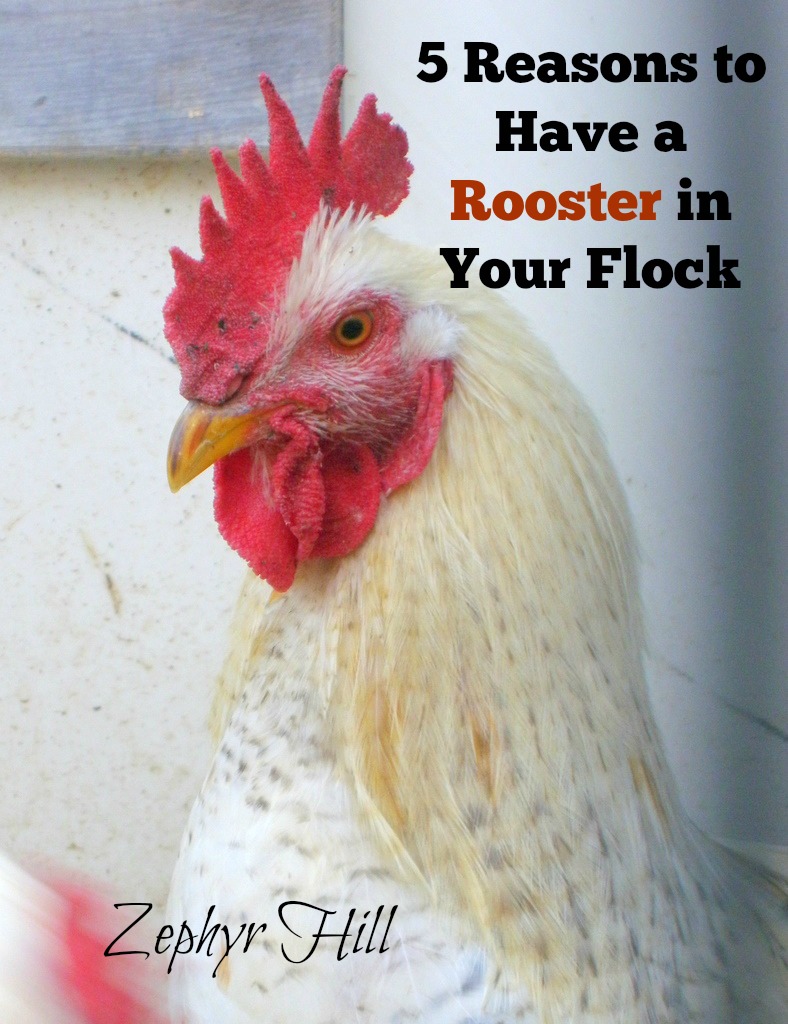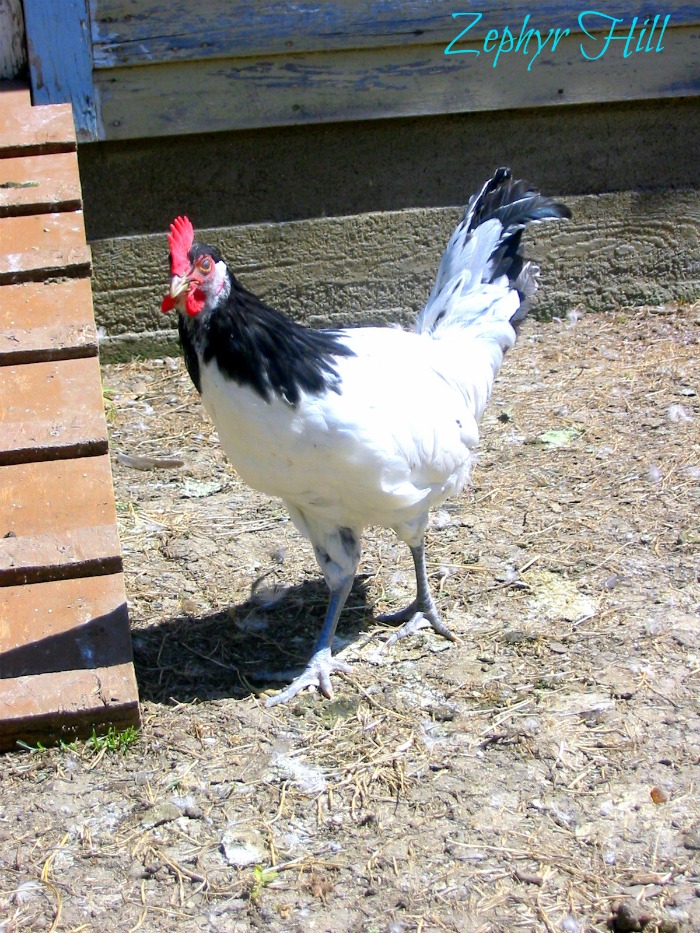Should you have a rooster in your backyard flock? Some families worry about aggression, or being woken up every day at the crack of dawn. But my family LOVES having a rooster. Assuming there’s no ordinance or law against it in your area, here are five reasons you might consider adding a cockerel to the mix:
Roosters are beautiful. As with many other species on Earth, the males are more showy. Roosters don’t just stand a head above the hens; their feathers are often more colorful or unusual. Some look quite exotic!
Roosters are helpful. They are fierce and vigilant protectors. At the slightest sign of danger, they go into action. I love watching our rooster corral the ladies in a safe place; he scolds them and threatens them if they try to venture out before he feels it’s safe to leave. When attacked, a hen begins to cry in a loud, pitiful voice. She tries desperately to get away. The rooster, however, will fight back with all his strength.
It’s nice to know someone else (besides us) is watching out for “the girls.”
Roosters are entertaining. Grab a cup of coffee and enjoy the show. We like to sit in the backyard and watch the rooster do his thing. He crows. He struts. He bosses the girls around. He’s the cock of the walk and doesn’t want anyone to forget it.
Roosters add possibility. If you decide to hatch some eggs later on, having a rooster is handy. Otherwise, you’ll have to purchase fertilized eggs.
Roosters add diversity. Who wants a bunch of mommies and no daddy? Let’s hear it for variety, right? Having both females and males in your flock makes things more interesting, and educational for everyone.
While we’re on the subject of roosters, here are three common questions people often ask:
Do our hens need a rooster in order to lay? Not at all; hens will give you nutritious, delicious eggs whether they are mated or not. And although some people still hotly debate the topic, most studies seem to show there’s not a difference nutritionally between fertilized and unfertilized chicken eggs, although there are some slight variances in structure. Some chicken enthusiasts will swear to you they can taste a difference, but I’ve never noticed it.
How many roosters should you have? The ratio of roosters to hens will vary according to breed and living quarters. For most standard backyard breeds, having one rooster for every 6-8 hens is plenty. Some smaller and more active breeds (like the Buttercup pictured above) can suffice with one rooster for every 10-12 hens. Free ranged birds give you greater flexibility; housed or caged birds offer less. Too many roosters will result in in-fighting and “roughing up” the females.
Are all roosters mean? Not by a long shot, so don’t let the story your grandmother told you about beating off a cock with a two-by-four scare you away. Certain breeds can be prone to aggression (the Rhode Island Red immediately comes to mind), and others are more mild (we’ve had good luck with Orpingtons and Buttercups). However, breed alone is not a determining factor. Handling also comes into play, so try out your “chicken whispering” skills early on. Hand feed your birds. Hold them in your lap. Let the children carry the young cockerels around. When all else fails, throw the bad boy in the stew pot, or use Craigslist to re-home him.





We’ll be starting our chickens very soon now. You almost have me convinced to try a rooster, but maybe that’s baby step 2
Come on, didn’t you see the pictures? Get a rooster!
I learned something new today! I had no idea that you could get eggs without a rooster. For some reason, I thought both were required.
Great pictures. Would love to paint them.